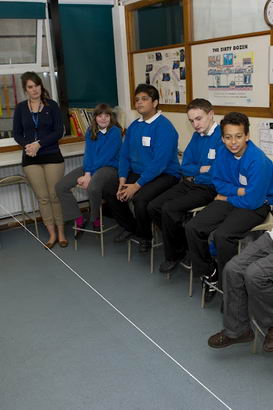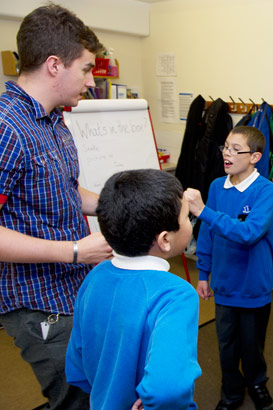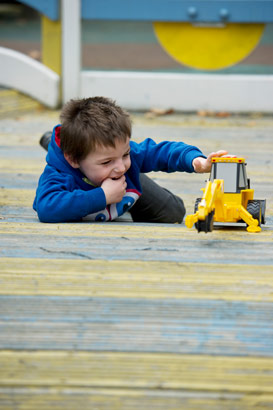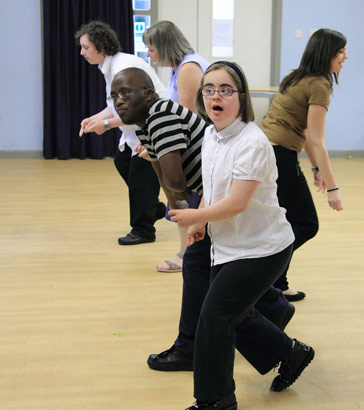From the cultural psychological perspective, culture is the most significant
system within which human development occurs ...
Lee and Johnson, 2007
Individuals develop as participants in their cultural communities, engaging
with others in shared endeavours and building on cultural practices of
prior generations ...
Rogoff, 2007
...developmentalism based on cultural psychology helps ... educators to
be aware of diverse goals of child development within and across cultures.
Lee and Johnson, 2007
Efe infants safely use machetes, but American middle-class adults often
do not trust five-year-olds with knives.
Rogoff, 2007
Normative regulation through notions such
as 'timetables' and 'milestones' for talking and walking or its emphasis
on 'age appropriate' behaviours... [are] expectations, which have come
from particular dominant middle-class cultural perspectives in Europe
and the
United States ...
Bird Claiborne,
2007
In my own teaching of human development in Aotearoa,
New Zealand, Samoan students have commented on the strangeness of studying
infancy as a specific period in life, without considering the ways that
infant and mother or caregiver may be together most of the time.
Bird Claiborne,
2007
For example, comparing children's rate of development is a cultural
practice that has accompanied bureaucratic organisation of children's
progress through compulsory schooling. This practice has developed over
a little more than a century in the US and Europe.
Rogoff, 2007
Rather than focus on interconnections between people and collective
aspects of culture... The focus [on the individual as an independent person]
downplays the importance of wider social forces such as families and the
ways that each person's achievements may be intertwined with the efforts
of others ... John Dewey expressed worry about American individualism
in the 1920s.
Bird Claiborne, 2007

All educators approach teaching equipped with 'folk psychologies' and 'folk pedagogies' (Bruner, 1996):
- Folk psychologies are personal beliefs about how the mind learns and grows
- Folk pedagogies are '... practices that emerge from deeply embedded cultural beliefs about how children learn and how teachers should teach...
Educators must understand their underlying folk
theories about children's learning and development in order to make sense
of and change their pedagogical practices.
Lee and Johnson,
2007
cultural perspectives

Perspectives on children's development have different focuses depending on culture:
- Children as community members vs children as individuals;
- Children prepared for later full community participation vs children fully involved in their community from birth;
- Much learning takes place out of context (for example, in school) vs community life as the context for learning;
- Family interdependence and reliance are highly valued vs personal independence, self-expression and autonomy.

Even defining child's play and a child's other activities differ depending
on one's culture. For example, many families with Asian ethnic cultural
influences tend to see play and academic activity separately.
In contrast, in the Reggio Emilia schools in Italy, after WWII, a curriculum emphasising community and responsibility was
based around the child's interests and conducted through exploration and discovery Many US educators and researchers with
Euro-American perspectives strongly
believe that child-initiated play and other experiences are already related
to the child's development of later academic experiences.
Hyun, 1998

Cross-cultural explorations suggest the endpoint of child development is
participation in their community, with participation being differently defined
by culture (Rogoff, 2007). If the opportunities offered for participation
(for example, learning experiences in educational settings) are not culturally
relevant, the result is disenfranchisement of the child (Lee and Johnson,
2007).
Culture includes not only hereditary culture, but other cultural
dynamics (for example, digital youth culture) (Lee and Johnson, 2007). Relevant
cultural experiences stimulate children to observe keenly, 'pitch in', and
collaborate (Rogoff, 2007).
The goal of education is transformation of [children's] participation,
which involves learning to collaborate, with appropriate demeanour and
responsibility, as well as learning information and skills, to be responsible
contributors belonging in the community.
Rogoff, 2011

Bird Claiborne, L. (2007) Beyond readiness: new questions about cultural
understandings and developmental appropriateness. In: J.L. Kincheloe and
R.A. Horn (eds) (2007) The Praeger Handbook of Education and Psychology (vol. 2). Westport,
CT: Praeger Publishers.
Bruner, J. (1996) The Culture of Education. Cambridge, MA: Harvard University
Press.
Hyun, E. (1998) Making Sense of Developmentally and Culturally Appropriate
Practice in Early Childhood Education. New York: Peter Lang.
Lee, K. and Johnson, A. S. (2007) Child development in cultural contexts:
implications of cultural psychology for early childhood teacher education,
Journal of Early Childhood Education, 35, 233-243.

Rogoff, B. (2007) The William James Book Award: The Cultural Nature of Human Development, The General Psychologist, 42 (1), 4-7.

McConachie, H., Colver, A.F., Forsyth, R.J., Jarvis, S.N. and Parkinson,
K.N. (2006) Participation of disabled children: how should it be characterized
and measured?, Disability and Rehabilitation, 28 (18), 1157-1164.
Rogoff, B. (2003). The Cultural Nature of Human Development. New York, NY:
Oxford University Press.